Hanoi: Children hospitalized due to flu skyrocket, doctors work hard to prevent complications ( Video : Minh Nhat - Mai Huong).
Ms. H. ( Hanoi ) just experienced sleepless days when her son was born prematurely at 30 weeks of pregnancy and had to be hospitalized again just 5 days after returning home from Hanoi Obstetrics Hospital.
The baby had a high fever of 38.5-39°C, difficulty breathing, fussiness and was diagnosed with influenza A on a background of infection.

Upon admission, the child was treated with antiviral influenza drugs and antibiotics, and his general condition and vital signs were closely monitored.
“The doctor said my child is in the high-risk group because he was born prematurely. When he gets the flu, he can suffer from complications such as pneumonia, respiratory failure, or many other complications. Hearing that, I was very worried and just hoped that my child would respond quickly to the medicine,” Ms. H. shared.

The changing weather in Hanoi has caused a rapid increase in the number of children suffering from respiratory diseases. According to the Hanoi Children's Hospital, the number of children with influenza A, RSV virus and some other respiratory diseases admitted for treatment has increased many times compared to last month, including severe cases requiring ventilators or neurological complications.

At the Infectious Diseases Department of Hanoi Children's Hospital, the treatment atmosphere is tense as nearly half of the hospital beds are reserved for flu patients.
Dr. Nguyen Sy Duc - Department of Infectious Diseases shared: "In the past 2-3 weeks, the number of flu patients, especially influenza A, has increased significantly. At times, the number of flu patients receiving treatment increased 5 times compared to the previous period.


Currently, the department has 70 inpatients, of which more than 30 have the flu. A similar situation is also recorded in the clinic area. Out of 10 patients who came to the clinic with fever, sneezing, and runny nose, 6-7 children tested positive for influenza A.

According to Dr. Duc, compared to previous years, the symptoms of influenza A this year are not much different. Patients come in with high fever, some cases 39-40 degrees Celsius, poor response to antipyretics, accompanied by sneezing, runny nose, and cough.

Patient A., 16 months old, has had influenza A for the past week. According to the mother, the patient caught the flu while going to school. The patient still has a high fever of 38.5 degrees Celsius.
This is not an isolated case. According to doctors, when asking about medical history, most of the cases are in families with members showing similar symptoms or in children's classes there is a recorded case of flu.



Pediatric patients are given aerosols to deliver medication in the form of mist into the child's respiratory tract, which helps to thin phlegm, moisten the mucous membranes and reduce local inflammation symptoms.
Notably, according to Dr. Duc, many hospitalized cases recorded complications, the most common being pneumonia.

"The group of patients with pneumonia caused by flu is very common, especially in patients with risk factors such as children under 2 years old, with underlying diseases such as cardiovascular disease, chronic respiratory disease, diabetes, and immunodeficiency," this expert analyzed.
Notably, the Infectious Diseases Department received and treated a patient with complications of encephalitis due to influenza A.
This is the case of a child over 3 years old who was admitted in a state of convulsions and coma only 24 hours after the onset of fever. The child was diagnosed with encephalitis due to flu, had to be treated with intensive care, put on a ventilator and used drugs to inhibit nerve damage.
After many days of treatment, the child's life was saved, but he still faces the risk of long-term neurological sequelae.
According to Dr. Duc, the hospital has also planned to add other disease prevention areas that can receive hundreds of flu patients if the epidemic becomes complicated.

Not only influenza A, other respiratory diseases are also on the rise. At the hospital's Respiratory Department, out of 49 children being treated, 45 are infected with RSV virus, of which 3 have serious complications.


RSV is a common virus in the cold season, easily causing pneumonia and bronchiolitis in young children, especially infants and children under 2 years old.

Hand, foot and mouth disease is also an infectious disease worth noting in recent times.

At the Infectious Diseases Department, doctors are monitoring baby P., 14 months old, with hand, foot and mouth disease grade IIB group 2 - the group at risk of neurological complications. The baby was admitted to the hospital with a high fever, startled many times, and trembling limbs. After 1 day of treatment, the startled and trembling limbs have decreased but the baby still has fever, so the risk of complications remains high.
According to Dr. Duc, a common mistake of many parents is to be subjective when their children have a fever, only treating them with common fever-reducing medicine without taking them to the doctor early. "For children with risk factors, if not treated specifically early, the disease can progress rapidly and cause serious complications," the doctor warned.

Doctors advise that the changing of seasons is the period when respiratory viruses are most active. To prevent disease, parents need to keep their children warm, avoid crowded places, wear masks, wash their hands regularly, ensure a nutritious diet, and give their children enough sleep.
“There are currently many types of vaccines to help prevent respiratory diseases such as influenza, pneumococcal, monoclonal antibodies to prevent RSV infection for high-risk children...
Full vaccination is an important measure to proactively help children reduce the risk of disease and avoid serious illness progression," Dr. Duc emphasized.
At Hanoi Children's Hospital, due to the rapid increase in respiratory diseases, many parents bring their children to get vaccinated, and many families have vaccinated all members against the flu.
Source: https://dantri.com.vn/suc-khoe/ha-noi-tre-nhap-vien-vi-cum-tang-vot-bac-si-cang-minh-ngan-bien-chung-20251111164918201.htm







![[Photo] Deep sea sand deposits, ancient wooden ship An Bang faces the risk of being buried again](https://vphoto.vietnam.vn/thumb/1200x675/vietnam/resource/IMAGE/2025/11/13/1763033175715_ndo_br_thuyen-1-jpg.webp)
![[Infographic] Deputy Secretary of the City Party Committee, Chairwoman of the Hanoi People's Council Phung Thi Hong Ha](https://vphoto.vietnam.vn/thumb/402x226/vietnam/resource/IMAGE/2025/11/13/1763038877681_img-2118-54020024704776382809356-82590448805670117934347.jpeg)












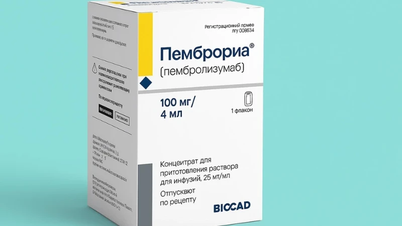


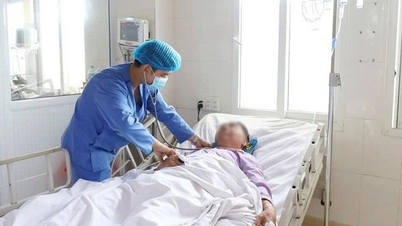





























































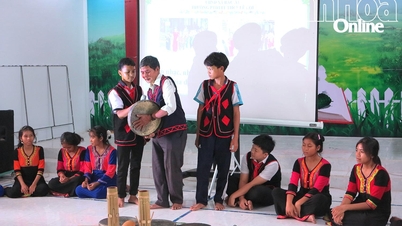




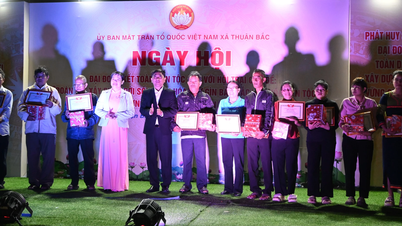

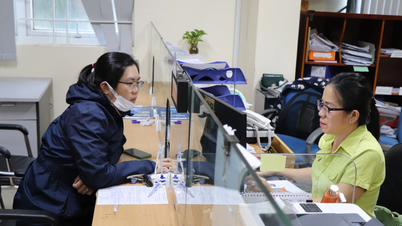





![Dong Nai OCOP transition: [Article 3] Linking tourism with OCOP product consumption](https://vphoto.vietnam.vn/thumb/402x226/vietnam/resource/IMAGE/2025/11/10/1762739199309_1324-2740-7_n-162543_981.jpeg)







Comment (0)